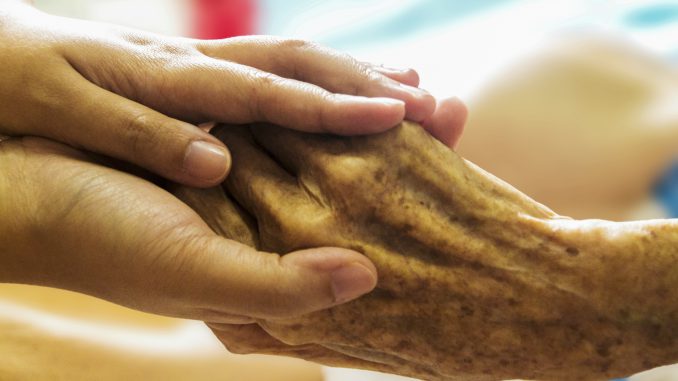
Marion Sumerfield, carer representative, reflects on how she became involved in this field of research and her work with the Cicely Saunders Institute (CSI).
Like many other people, who have gone through the experience of supporting a loved family member dealing with cancer, or any disease, you cannot help but want to do something to help others who are going through the same experience. To pay forwards what someone else has given to you and the person you cared for. All of the fundraising events and marathons run to support hospices and cancer research are testimony to why so many people want to do the same.
I also wanted to give something back because of all the help and support that was given to my mother. Running a marathon wasn’t an option for me (!) so I became a carer representative at the London Cancer Alliance’s End of Life Group instead. It took a while to understand the terminology and acronyms used when discussing the processes around palliative care and the different organisations involved in this work. If you don’t work in this area or in medicine, there is a lot to come up to speed with but I found it interesting and was glad to contribute in whatever way I could.
By being part of those meetings I became aware of the research carried out at the Cicely Saunders Institute (CSI). I appreciated that research was needed to make changes but initially, all I wanted was to see change on the wards for everyone and I didn’t see how research was needed to make that difference? It was obvious – for patients to be supported with the right clinical care, treated with respect and kindness and that their families are included in any decision- making process. Why was research needed to change the most basic requirements that any of us would want at the end of our lives?
I gradually began to appreciate the role that research and data collection plays in moving towards better treatment. When health policies need to be implemented at a national level, all of this accrued information, identifies how best to treat people. I attended my first CLAHRC event four years ago and it was interesting to meet other groups and service users there, listen to other people’s stories and understand how other groups are finding new ways of working together to help and support people’s health needs. Three years later, I was able to co-present with Sophie Pask of the CSI about their new Online Patient Forum, which helps to widen the opportunity to discuss, raise questions and be part of the Institute’s research work.
I work with the CSI as part of their Patient and Public Involvement (PPI) group and the C-Change project, which aims to develop a system to accurately capture the complex needs of people with advanced disease. Their research work centres on understanding people’s lived experience, and how different needs can be best met for both the patient and their families in the last year of life. This can be a difficult subject to discuss but everyone at the CSI is respectful and mindful of this. It is so important to be able to talk about this core issue, which will affect each and everyone of us and I am glad to be part of their work.

Leave a Reply